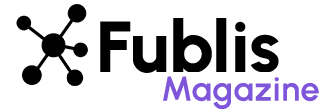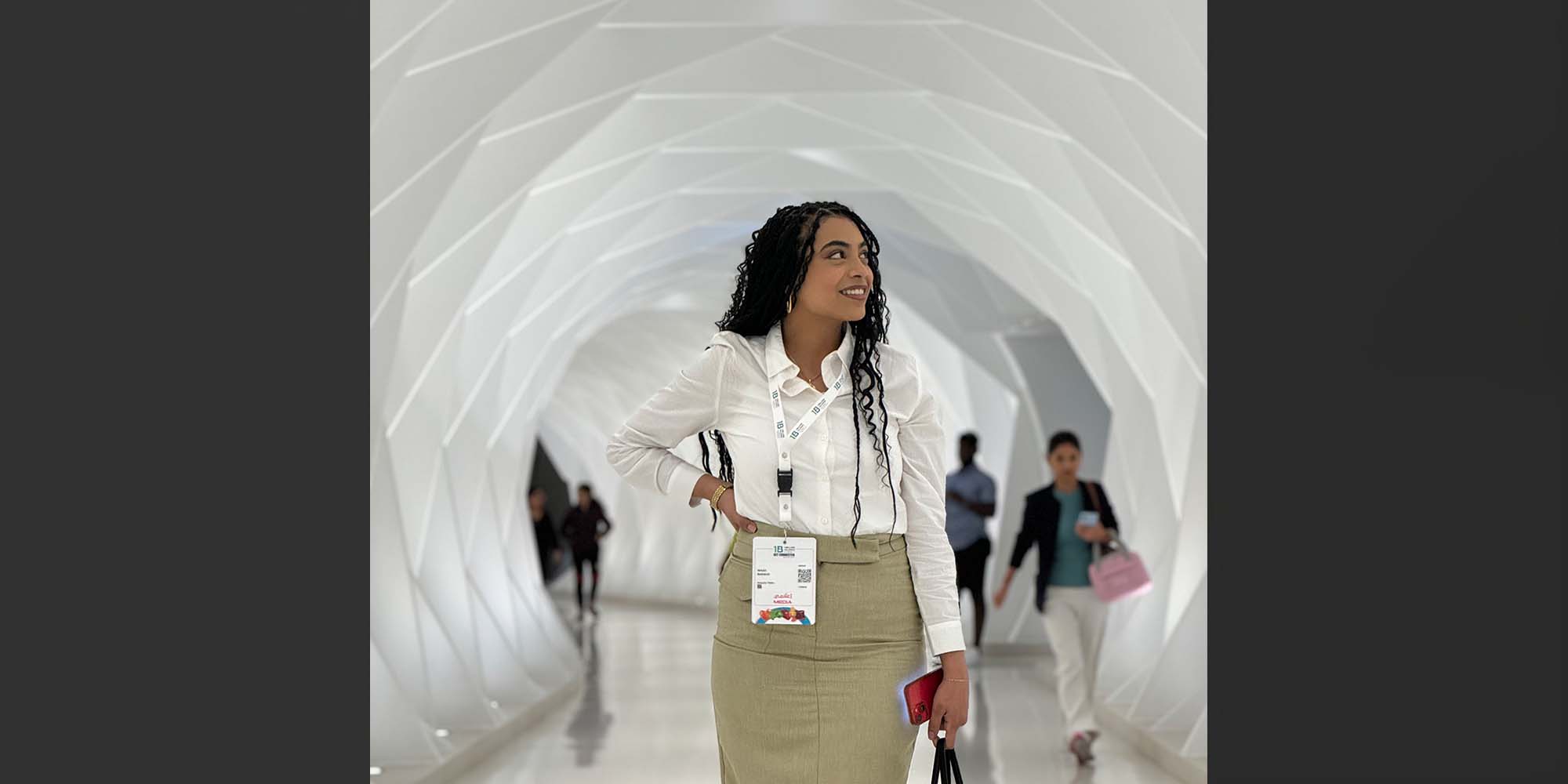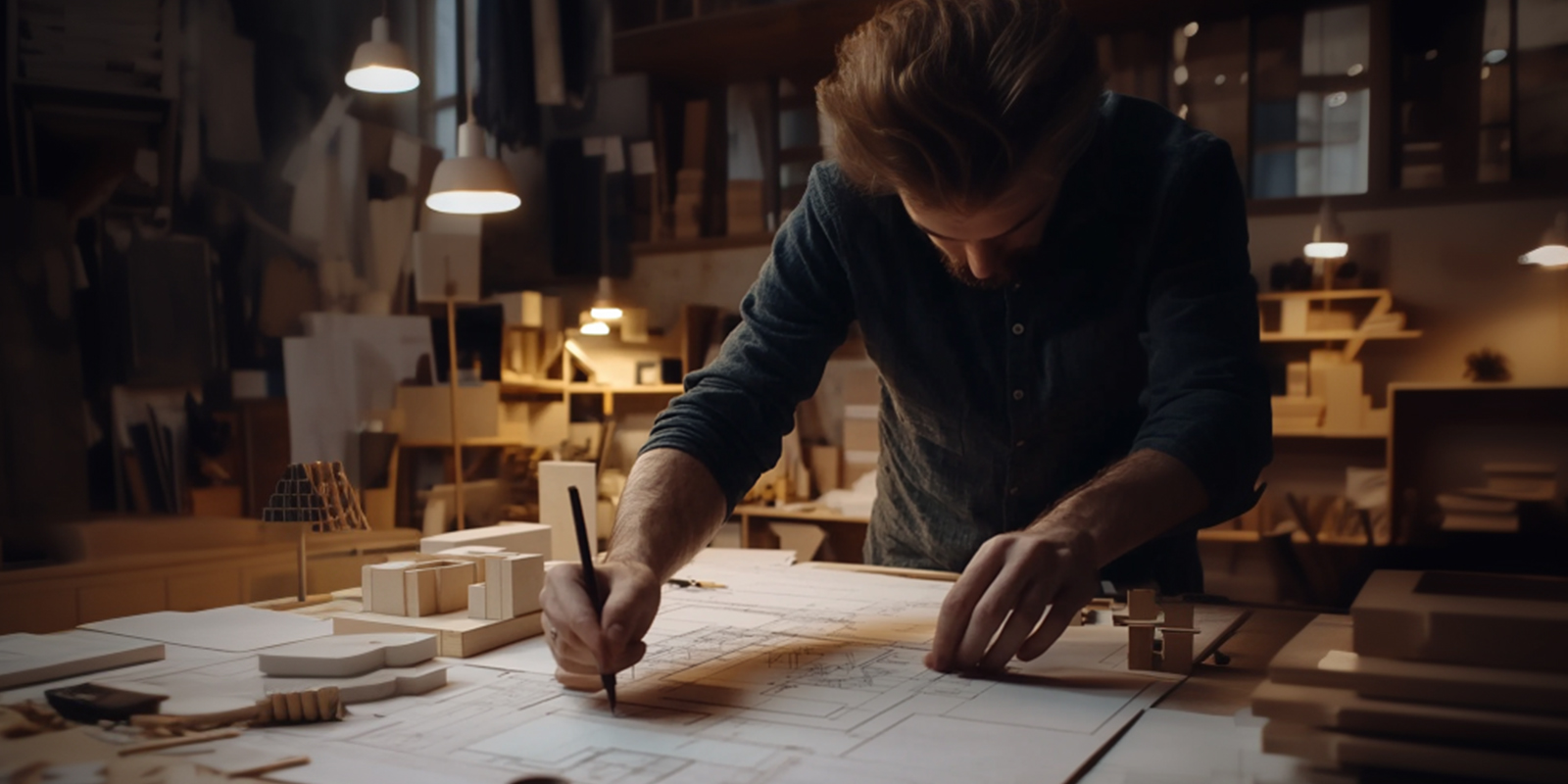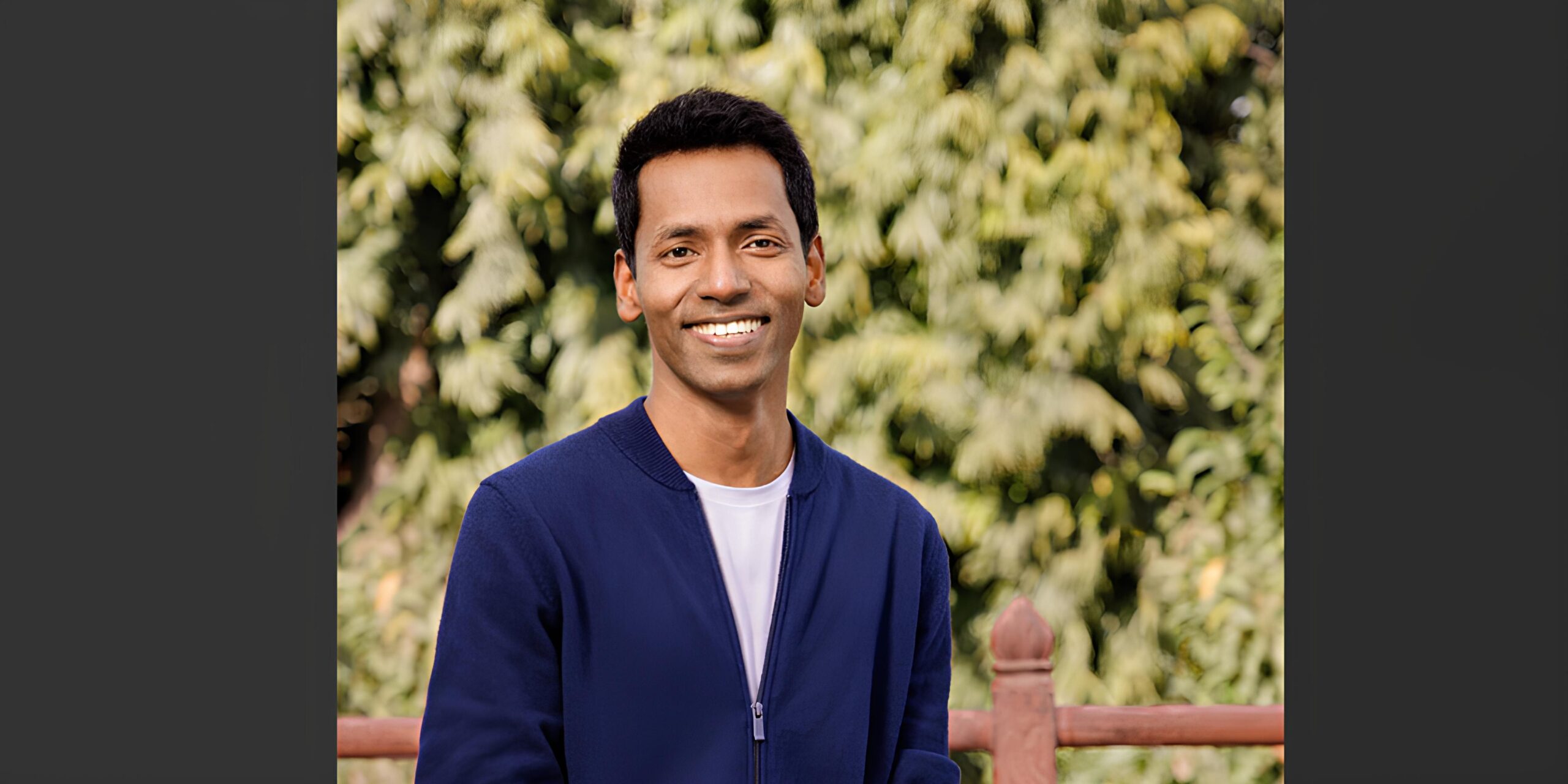Welcome to Media Matters, the Fublis series where we engage with media professionals, like journalists, editors, writers and others shaping the stories that matter. In each interview, we explore their journeys, experiences, and insights into the ever-evolving media landscape.
In this edition, we have the pleasure of speaking with Waad Barakat, a journalist who made an unconventional career transition from dentistry to journalism. Waad’s inspiring journey highlights the power of passion and resilience. She reflects on how a twist of fate led her to pursue her childhood dream of becoming a journalist, especially after the conflict in Sudan reshaped her life. Now thriving in her role at Khaleej Times, Waad discusses the evolving world of digital journalism, the challenges of switching careers, and the importance of storytelling in shedding light on both significant global issues and deeply personal human stories.
What inspired you to make a shift from dentistry to journalism and writing?
Waad Barakat: My shift from dentistry to journalism was a bit of a twist of fate. Funny enough, becoming a journalist was actually a childhood dream of mine, but I never thought it would come to life. Looking back, it feels like it was meant to be—I didn’t really plan it out or feel particularly inspired at the time; I just found myself on this unexpected path. Writing has always been a passion, but I never had formal training. Instead, I learned through experience, diving into freelance work that exposed me to different writing styles—everything from scripts and articles to reports and even ghostwriting a book chapter. I found such joy in letting my thoughts flow onto the page.
While I was building my dentistry career in Sudan, I continued to write on the side to maintain my independence. Then, everything changed in April 2023 when conflict erupted in Sudan. With no academic certificates to prove my six years of dental education, I had to rely on my words and skills to guide me. I made the leap to the UAE, applied for various positions, and ultimately landed an opportunity as a journalist at a leading newspaper here. It truly was a twist of fate!
Are there any emerging trends in digital journalism that really excite you?
Waad Barakat: What truly excites me about digital journalism is the endless possibilities for storytelling. In the past, storytelling was mostly about words on a page, heavily relying on descriptive language to engage readers. Now, with digital platforms, we can captivate audiences in so many ways—through a mix of words, photos, videos, and audio. This multimedia approach not only enriches the narrative but also allows us to engage with readers in innovative ways. It’s amazing how we can create a more immersive experience that resonates on different levels.
How does writing for a digital audience differ from traditional print media in your experience?
Waad Barakat: Working in a media outlet that covers both digital and print really brings out the differences in how we connect with our audiences. Digital platforms are all about quick bites—people have shorter attention spans, and you’re often up against algorithms for visibility. This means you need to be quick, concise, and catchy. It’s a whole different ball game!
On the flip side, print media gives you the space to dive deeper into a story. You can really explore the nuances and details, which is something I love. It feels like a switch in gears—one moment, I’m crafting a snappy headline for online readers, and the next, I’m writing a longer, more in-depth piece for the paper.
Juggling both formats has been quite the journey! I’ve even picked up some SEO tricks along the way to grab readers’ attention while making sure my reporting stays accurate and rich in detail. Each format has its own challenges and rewards, which keeps things interesting and helps me grow as a journalist.
What was the toughest part of moving from healthcare into the world of journalism? How did you handle it?
Waad Barakat: The toughest part of my transition was definitely starting from scratch and embracing the constant learning curve. Life is all about learning, but there’s a huge difference between sitting in a lecture hall and figuring things out on the fly in the real world. In journalism, you often have to break news in real-time, where every second counts—something I never learned in my previous career. I had to pick this up quickly during my latest role at Khaleej Times, and I’m still mastering it. It’s a far cry from the steady pace of treating patients in dentistry.
The time sensitivity in this field is intense—minutes and hours can make a huge difference in how a story unfolds. It can be stressful, but my passion for journalism makes it all worthwhile. I thrive on the thrill of discovering new places and meeting diverse people every day. Those experiences invigorate me and remind me that I’m truly following my dream. Yes, it’s a more demanding job, but when you love what you do, the stress feels manageable.
Every day is an adventure. Whether I’m racing against the clock to get a story out or navigating the complexities of a developing situation, I find joy in the unpredictability. I handle the pressure by reminding myself that I’m working on something I believe in. Each story I write connects me to the world in a meaningful way, and that keeps me motivated. The chance to share voices and perspectives that might otherwise go unheard is a privilege I never take for granted.
Could you share a human interest story you’ve written that really stuck with you and resonated with readers?
Waad Barakat: Every human interest story I’ve covered has left a lasting impression on me because they often reveal layers of detail that might otherwise go unnoticed. One story that stands out is about a senior daycare center in Dubai. Initially, I planned to focus on the facility itself, but as I spoke with the owner, I learned that her motivation for opening the center stemmed from her 85-year-old relative’s struggles with declining health while confined at home. This heartfelt conversation illuminated the often-overlooked joys and challenges that seniors face, showing how the center became a sanctuary for them. What truly moved me was when she recounted a reunion of two friends who hadn’t seen each other in 50 years, right there in the facility.
Another deeply impactful story was that of a Palestinian family who reunited in the UAE after escaping the war in Gaza. When I spoke with Maysoon Abdel Qader, she shared harrowing details about how she and her two children had to sleep through the sounds of drones and blasts for weeks. They rummaged through bombed neighborhoods in search of food, power, and warmth, enduring the brutal war for 36 long days. The fear her husband, Sami, felt while working in the UAE, separated from his family, was palpable. His worry for their safety and his desire to bring them to a place of peace weighed heavily on him.
What I love most about these stories is that they allow me to delve into what people often consider ordinary. I get to uncover the “why” and “how” behind their experiences, shedding light on the struggles and triumphs that shape their lives. While many may only see the end results of success and failure, my role as a journalist lets me explore the journey—the pain, the joy, and the resilience that often lie beneath the surface. Each story is a reminder of our shared humanity, and I feel privileged to share these voices that deserve to be heard.
What’s the most valuable lesson you’ve learned in your career as a writer and journalist?
Waad Barakat: One of the most important lessons I’ve learned is the need to take care of myself. Our newsroom provides a therapist for monthly check-ins, and one piece of advice that really resonated with me was, “You work in one of the most stressful jobs, so it’s crucial to check in with yourself.” Journalists are often the first to encounter both good and bad news, and navigating those narratives while delivering them to the public can be overwhelming. Self-care is essential.
Another critical lesson is the importance of double-checking facts, something my editor emphasized. We owe it to our readers to provide accurate, reliable information, even if it means holding a story for a few extra hours. We don’t publish anything unless it’s fully sourced and verified.
What’s your favorite part of the writing process when working on a new story?
Waad Barakat: My favorite part of the writing process is that magical moment when everything finally comes together. Each story is like a puzzle with countless facets, requiring input from various sources—comments from authorities, opinions from experts, and reactions from everyday people. It’s that anticipation of reaching out and waiting for responses that truly excites me. Each reply feels like a piece of the puzzle falling into place, and when it all fits together into a cohesive narrative, it’s incredibly satisfying.
I also thrive on the challenge of diving deeper into a story to uncover angles I hadn’t initially considered. Sometimes the best insights emerge unexpectedly, transforming a straightforward narrative into something much richer and more complex. I enjoy exploring the layers beneath the surface, asking questions that might lead to surprising revelations.
For instance, while researching a story, I might stumble upon a personal anecdote that adds a whole new dimension to the piece. It’s these moments that remind me of the power of storytelling—to not only inform but to connect with readers on a deeper level.
Do you find it challenging to switch between covering serious security issues and writing more personal human stories?
Waad Barakat: Not really! I actually enjoy the variety. Writing about serious issues alongside lighter, more personal stories adds depth to my work. It keeps things engaging and allows me to explore a wide range of human experiences. The main challenge can be the pace—when you’re reporting back-to-back stories, it can be a bit jarring to switch gears. Your audience might not realize that you just covered a heavy topic right before writing about something more lighthearted. But I find that diversity invigorates my work and helps me grow as a journalist.
What advice would you give to someone looking to switch from another profession to journalism?
Waad Barakat: If you feel drawn to journalism, go for it! Start somewhere, even if you think you have no experience. Journalism offers a wide array of opportunities, and at its core, it’s about being the voice for many. The journey can be incredibly rewarding, filled with exciting chances for growth.
If you enjoy writing, consider pitching stories to various organizations, magazines, and newspapers. Don’t box yourself in! You might uncover a passion for a particular topic or style, or you may realize it’s not quite what you expected—and that’s perfectly fine. The key is to take that first step.
Begin by reading widely to grasp different writing styles and perspectives. Try writing about news events on your blog or sharing your thoughts on social media. This practice not only sharpens your skills but also helps you discover your unique voice.




